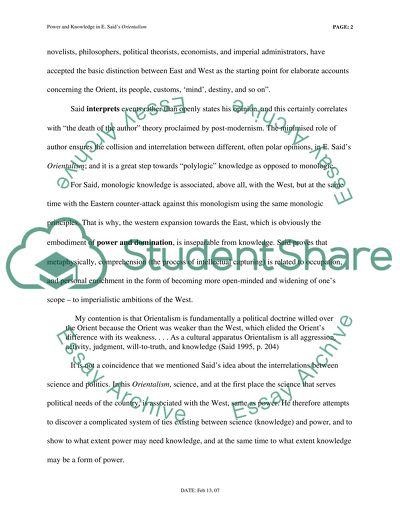Cite this document
(Power and Knowledge In Edward Said's Orientalism Book Report/Review, n.d.)
Power and Knowledge In Edward Said's Orientalism Book Report/Review. Retrieved from https://studentshare.org/sociology/1531061-power-and-knowledge-in-edward-saids-orientalism
Power and Knowledge In Edward Said's Orientalism Book Report/Review. Retrieved from https://studentshare.org/sociology/1531061-power-and-knowledge-in-edward-saids-orientalism
(Power and Knowledge In Edward Said'S Orientalism Book Report/Review)
Power and Knowledge In Edward Said'S Orientalism Book Report/Review. https://studentshare.org/sociology/1531061-power-and-knowledge-in-edward-saids-orientalism.
Power and Knowledge In Edward Said'S Orientalism Book Report/Review. https://studentshare.org/sociology/1531061-power-and-knowledge-in-edward-saids-orientalism.
“Power and Knowledge In Edward Said'S Orientalism Book Report/Review”. https://studentshare.org/sociology/1531061-power-and-knowledge-in-edward-saids-orientalism.


